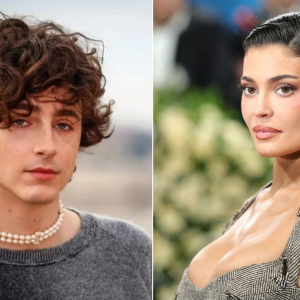In a recent controversial statement that stirred considerable debate within both the music and social commentary spheres, actor and country music artist John Schneider likened Beyoncé’s new ventures into country music to a dog urinating on a fire hydrant, inferring that the leftist agenda is attempting to dominate various aspects of culture, including traditional music genres. Schneider, known for his roles in popular television series and his own music career, has an outspoken reputation, often aligning with conservative viewpoints. His comments reflect a growing sentiment among some traditional country artists who feel that the genre’s essence is being compromised by what they perceive as an influx of pop and outside influences.

The comparison itself is provocative, igniting passionate discussions among fans, industry insiders, and music enthusiasts who are divided in their reactions. Supporters of Schneider’s perspective argue that country music has deep, historical roots steeped in authenticity and American culture that should be preserved. They contend that artists such as Beyoncé, whose musical background primarily lies in pop and R&B, may not fully grasp or respect the tradition and values that epitomize country music. This viewpoint reflects a broader anxiety among certain segments of the country music community, who fear that the genre is losing its identity amidst an increasingly diverse musical landscape.
On the contrary, advocates for Beyoncé and her artistic exploration argue that music should not be confined to strict genre lines. Beyoncé’s foray into country music, particularly with her rendition of “Daddy Lessons,” has been celebrated by many as a bold expansion of the genre’s boundaries, showcasing its capacity to evolve while embracing a cross-pollination of styles. Proponents of this view assert that Schneider’s comparison diminishes the collaborative spirit of music, suggesting that innovation and genre-blending can lead to shared experiences rather than cultural erosion. They highlight the importance of recognizing that artists from diverse backgrounds can contribute to a fuller, richer musical narrative.

Furthermore, Schneider’s comments also touch upon deeper political undertones that resonate with ongoing cultural conflicts across America. His assertion that “leftists are trying to take over everything” hints at a perception of society being embroiled in a culture war, wherein traditional values are perceived to be under siege by progressive elements. This framing can polarize discussions surrounding artistry and ethics, positioning the conversation within a larger context of political ideology. As headlines evolve with discussions of cultural appropriation, representation, and artistic integrity, Schneider’s remarks serve as a rallying cry for those who advocate for a traditionalist approach to music.
The backlash against Schneider’s comments has resulted in a flurry of responses on social media platforms, where fans of both Beyoncé and country music engage in passionate discourse. Some express disappointment in Schneider’s narrow view, arguing that his dismissal of Beyoncé’s contributions overlooks the importance of inclusivity in music genres. Others empathize with his sentiments, recalling a time when country music felt more exclusive and rooted in its Southern heritage.

This incident highlights a crucial turning point in the music industry, where artists face greater scrutiny not just for their musical choices but also for their societal messages. The conversations sparked by Schneider’s remarks challenge listeners to reflect on how genre boundaries are perceived and the role of artists in shaping cultural narratives. They force a reconsideration of how one defines authenticity and the means through which these definitions can evolve over time.

In wrestling with the implications of Schneider’s statements, audiences are encouraged to navigate the complexities of music as a form of expression. As genre boundaries blur and influence from diverse cultures becomes increasingly prominent, the discourse surrounding where to draw the line on authenticity and ownership invites both conflict and growth. Ultimately, the conversation around Beyoncé’s foray into country music serves as a microcosm of broader societal changes—one where the music industry must navigate a landscape that is both rich in history and ripe for innovation. In embracing this evolution, perhaps the music community can find a way to honor the past while simultaneously allowing for a thriving future that celebrates diverse voices and narratives.





